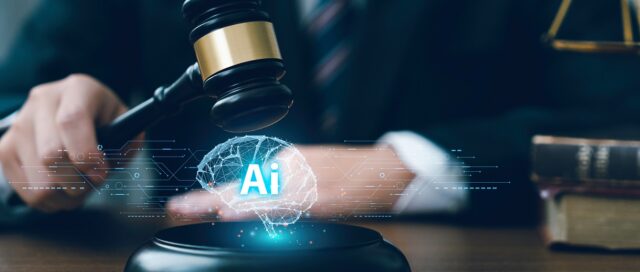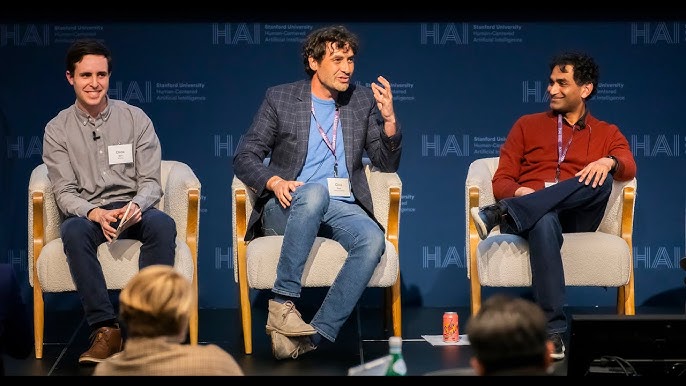
In a time of sweeping technological change, a prominent voice in the world of technology and public policy is urging swift collective action to shape the future of learning. With over three decades in data science, public policy, and entrepreneurship, Dr Ying, Singapore’s inaugural chief scientist at NCS Group, warns that the expansion of artificial intelligence across education is accelerating without a unified framework to guide it. He says the absence of consistent AI governance exposes students and institutions to biases, unfair outcomes, and widening inequality.
Dr Ying paints a vivid picture of uneven AI integration. While some schools leverage machine learning for advanced feedback or personalised tutoring, many remain at the stage of simple chatbots or standardised AI tools. Without coordinated oversight, AI use will continue to diverge along economic, geographical, and institutional lines.
He believes that global AI governance in education should be modelled on international structures such as the WTO. It must address ethical deployment, data bias, access, oversight, transparency, and accountability. Dr Ying calls for binding standards and systemic checks in everything from adaptive learning tools to student data privacy. AI governance needs to ensure that, as technology advances—from large‑language models to future breakthroughs like quantum‑powered systems—education systems remain safe, equitable, and aligned with democratic values.
Expert Calls for Global AI Governance in Education
AI governance must transcend borders to uphold universal principles while allowing national and cultural flexibility. Dr Ying emphasises that education is a common good, and deploying AI without robust standards risks uneven outcomes. He points to data‑driven bias that can reinforce discrimination in student assessment or access, affecting those from underserved communities most severely. Aligning AI governance across systems would be a strong step towards closing opportunity gaps.
The challenge is not new. The UN’s recent Sustainable Development Congress in Istanbul highlighted AI literacy as a human right. Rector Marwala of UNU‑IAS urged the inclusion of ethics, transparency and inclusive AI governance in curricula. Back in 2024, European negotiations led to the Framework Convention on Artificial Intelligence under the Council of Europe, a pioneering binding international treaty focused on transparency, accountability, human‑rights compliance and fair governance. Experts are clear: piecemeal national policies won’t suffice.
In February, the AI Action Summit saw 58 countries adopt a Statement on Inclusive and Sustainable Artificial Intelligence. Its core principles include international cooperation and ethical AI governance, in contrast with the notable absence of the US and UK from the declaration. This global momentum shows that consensus on AI governance in education is within reach.
Dr Ying warns that without coordination, new technologies are likely to reinforce existing digital divides. He foresees hurdles from quantum‑resilient infrastructure, insufficient teacher training, fragmented regional policies, and market pressures that prioritise rapid deployment over democratic values. Investment must go beyond gadgets to developing teacher capacity, systems for audit and review, and learning-centred stewardship at scale.

By advocating interoperable platforms and shared datasets governed under ethical standards, global AI governance can accelerate innovation that benefits all students. Imagine if a rural school in Nigeria could access validated diagnostic tools developed in Singapore, or a special‑needs class in Brazil could use an adaptive tutor based on open‑source frameworks vetted by international partners. This is the kind of learning ecosystem Dr Ying envisions.
Governments must be central to global AI governance. Dr Ying proposes a multilateral treaty combining the commitments of the WTO with peer‑review mechanisms and sanctions for non‑compliance. Such a framework would include periodic audits, a global registry of approved AI learning tools, and independent feedback channels for students and educators.
He emphasises that effective AI governance isn’t about stifling innovation but channelling it ethically. With clear roles for international organisations, national regulators, educational institutions, civil society, parents, and tech providers, we can build systems that both accelerate learning and uphold values.
The risk of inaction is real. AI tools adopted in an ad‑hoc way could worsen inequality, institutionalise bias, erode trust in assessments, and diminish critical thinking. Teachers may become sidelined or overwhelmed by opaque systems. Students could internalise algorithmic judgments without understanding the context. A global AI governance framework would act as a compass, helping redesign education for a world where AI is integral.
Dr Ying’s call is timely. Last month, UNESCO and LG AI Research launched a global MOOC on AI ethics and governance to reach researchers, educators and policymakers. In India, the PadhAI conference brought together ministers and experts to explore socially inclusive and ethical deployment of AI in education. These are steps forward, but without a globally aligned governance structure, they risk remaining isolated initiatives.
True global AI governance in education means shared standards for transparency, accountability, data rights, safety, and inclusion. It means no student is left behind because their school lacks access, or a dataset used in their classroom amplifies inequity. It means empowering teachers to use AI responsibly and equipping students to question it. It means harmonising innovation and ethics across borders.
Education is too precious to be left to market forces or national patchwork. Now is the moment for global leaders to align on ethics, agree on principles, sign treaties, develop tools, train teachers, audit systems, share data and test approaches. This is how we build trust and ensure AI governance in education serves human aspirations.
Dr Ying’s vision offers hope: a future where AI governance does not constrain progress but guides it. Where every learner, everywhere, benefits from smart, safe, ethical technologies that respect dignity and democracy. Where AI governance in education becomes not a luxury but the foundation for a learning revolution.
Join Our Social Media Channels:
WhatsApp: NaijaEyes
Facebook: NaijaEyes
Twitter: NaijaEyes
Instagram: NaijaEyes
TikTok: NaijaEyes







































